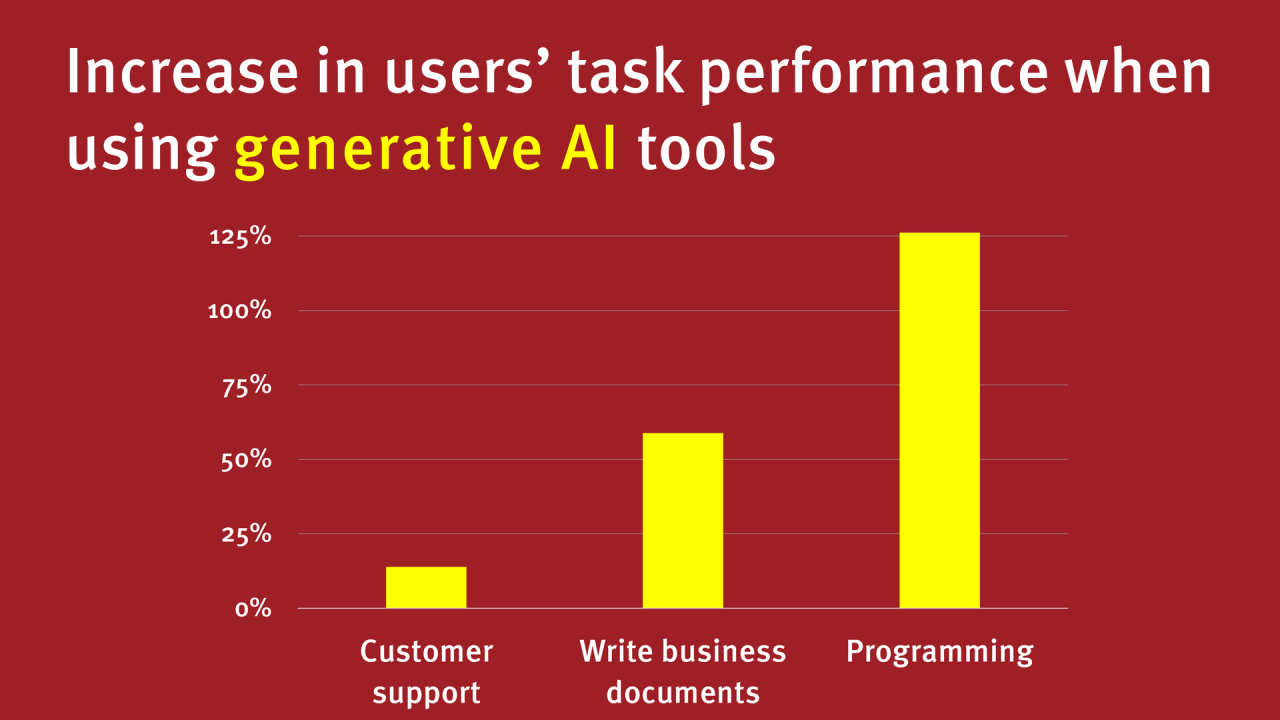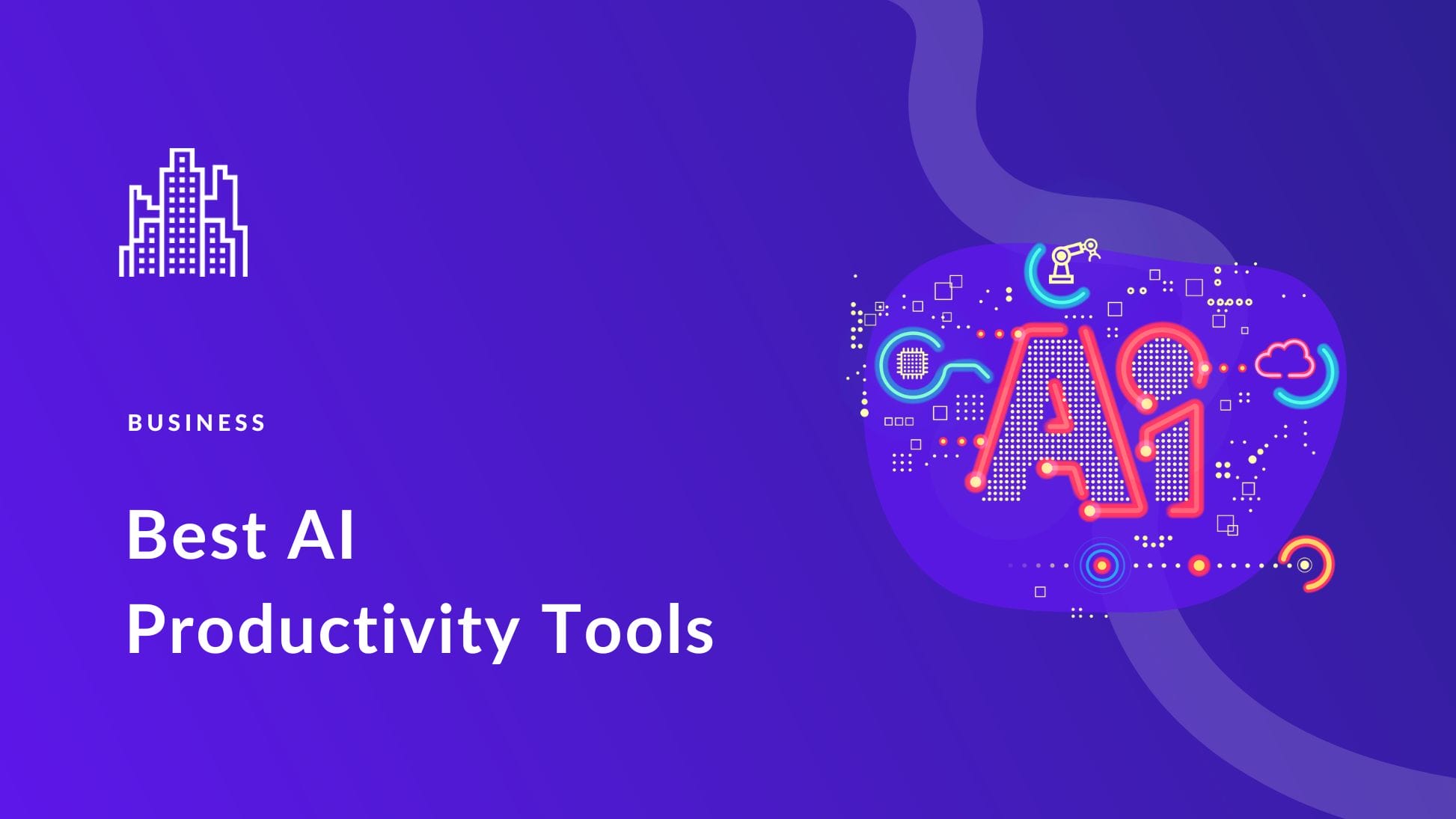Find out the potential of AI tools to optimize your business, increase efficiency, and achieve success. These tools can streamline and automate tasks, optimize workflows, and create personalized customer experiences.
They can also help improve customer engagement and analyze customer behavior. Some popular AI tools for business include Zoom AI Companion, Writesonic, Pictory AI, Wordtune, Synthesia, and more. Whether you need assistance with productivity, marketing, chatbots, data analytics, or HR and recruiting, there is an AI tool available to suit your needs.
By leveraging these AI tools, you can stay ahead of the competition and ensure the growth and success of your business.

Credit: www.simplilearn.com
Introduction To AI Tools
Find out the power of AI tools for business with a range of applications from streamlining tasks to enhancing customer experiences. From automated responders to sales forecasting, these tools offer immediate results for optimizing workflows and boosting engagement. Explore the potential of AI software in transforming your business operations.
Definition And Overview
AI tools refer to applications and software that utilize artificial intelligence technologies to perform multiple tasks autonomously. These tools aim to improve operational efficiency and decision-making processes in businesses through data analysis and predictive algorithms.
Importance In Business
Incorporating AI tools in business operations is crucial for staying competitive in today’s digital landscape. These tools enable automation and optimization of tasks, leading to improved productivity and cost-effectiveness. Businesses can leverage AI for personalized customer experiences, data analysis, and strategic decision-making.
AI tools for small business play a significant role in streamlining operations and scaling growth. By utilizing AI marketing tools for small business, companies can improve customer engagement, analyze market trends, and target specific audiences effectively.
- Enhances operational efficiency
- Improves decision-making processes
- Optimizes tasks and workflows
- Enables personalized customer experiences
Businesses can benefit from a diverse range of AI tools, such as Chatbots, Zapier, and HubSpot, which offer functionalities like automated responses, data analysis, and customer support. Integrating AI tools can revolutionize how businesses operate and interact with their target market.

Credit: www.linkedin.com
Types Of AI Tools
AI Tools for Business are a key asset to streamline and optimize workflows, automate tasks, and improving customer experiences. These tools include AI software for customer engagement, behavior analysis, and personalized interactions. Examples of commonly used AI tools in the business world include spam filters, voice-to-text features, smart personal assistants, process automation, and sales forecasting.
By leveraging these AI tools, businesses can achieve immediate results and drive success.
Natural Language Processing (nlp)
In the world of artificial intelligence, Natural Language Processing (NLP) is a game-changer. NLP allows machines to understand and interpret human language, enabling businesses to automate multiple tasks like customer support and data analysis. With NLP-powered AI tools, businesses can now process vast amounts of written or spoken text, extract valuable insights, and improve overall productivity. Whether it’s analyzing customer feedback or creating personalized marketing campaigns, NLP can revolutionize how small businesses operate in today’s digital landscape.
Machine Learning (ml)
Machine Learning (ML) is the driving force behind many AI tools used in business settings. ML algorithms learn from data, identify patterns, and make data-driven decisions without explicit programming. This technology has numerous applications for small businesses, including customer segmentation, fraud detection, and demand forecasting. By using ML-powered AI tools, businesses can leverage their data to gain a competitive edge, make informed decisions, and optimize multiple processes for better efficiency and growth.
Computer Vision
Computer Vision is an AI tool that focuses on understanding and interpreting visual data, such as images and videos. This technology enables machines to “see” and interpret the world like humans. In the business world, computer vision can be used for different applications, such as object recognition, quality control, and facial recognition for security purposes. By integrating computer vision AI tools into their operations, businesses can streamline processes, improve accuracy, and improve customer experiences in sectors like e-commerce and manufacturing.
Virtual Assistants
In the realm of AI tools, Virtual Assistants are becoming increasingly popular for businesses of all sizes. Virtual Assistants leverage AI to perform tasks traditionally done by humans, from managing calendars and scheduling appointments to answering customer inquiries and providing personalized recommendations. These AI-powered helpers offer businesses increased efficiency and productivity, allowing entrepreneurs to focus on critical tasks while the virtual assistant handles routine operations. Whether it’s a chatbot on a website or a voice-controlled virtual assistant, this technology has the potential to revolutionize how small businesses engage with their customers.
Use Cases Of AI Tools In Business
AI tools have revolutionized the way businesses operate, providing them with advanced capabilities to streamline processes, drive productivity, and improve customer experiences. With these tools, businesses can leverage the power of AI algorithms and machine learning to automate tasks, analyze data, personalize customer interactions, and optimize decision-making. Let’s explore the different use cases of AI tools in business:
Customer Insights And Personalization
In today’s competitive market, understanding customers and delivering personalized experiences is crucial for business success. AI tools enable businesses to extract valuable customer insights from vast amounts of data and adapt their marketing strategies accordingly. By analyzing customer behavior patterns, preferences, and purchase history, businesses can gain deep insights into their target audience and create personalized marketing campaigns. This leads to higher customer engagement, loyalty, and increased conversions. Some of the best AI tools for customer insights and personalization include:
- Candide
- WARMER.ai
- Paradox
- Textio
Process Automation
AI tools enable businesses to automate repetitive tasks and optimize workflows, allowing employees to focus on high-value activities. By leveraging AI algorithms, businesses can automate processes such as data entry, report generation, inventory management, and more. With AI-powered process automation, businesses can achieve efficiency, reduce errors, and save time and resources. Some popular AI tools for process automation include:
- Pictory AI
- Synthesia
- Fireflies.ai
Data Analysis And Decision Making
Data is the lifeline of every business, and AI tools provide the ability to analyze vast amounts of data quickly and accurately. With AI-powered data analysis, businesses can derive actionable insights, make informed decisions, and identify business opportunities. AI tools can perform complex data analysis tasks, such as predictive analytics, sentiment analysis, and anomaly detection. Some notable AI tools for data analysis and decision-making are:
- ThoughtSpot
- Tableau Software
- DataRobot, Inc.
Chatbots For Customer Support
Providing exceptional customer support is essential for business growth and customer satisfaction. AI-powered chatbots offer 24/7 support to customers, resolving queries and providing instant assistance. Chatbots can handle repetitive and routine customer inquiries, freeing up human agents to focus on complex issues. These intelligent virtual assistants can provide personalized and interactive customer experiences, resulting in improved customer satisfaction. Some popular chatbot AI tools for customer support include:
- ChatSpot.ai by HubSpot
- Jasper AI
- AI marketing tools Chatbot
With the rapid advancements in artificial intelligence, businesses can leverage AI tools to gain a competitive edge, improve productivity, and drive growth. Whether it’s customer insights and personalization, process automation, data analysis, or customer support, there are AI tools available to cater to every business need. So, embrace the power of AI and explore the best AI tools for your business.
Benefits And Challenges Of Implementing Ai Tools
Integrating AI tools in businesses offers a plethora of advantages but is also accompanied by certain hurdles. Let’s explore the key aspects:
Improved Efficiency And Productivity
Implementing AI tools in business operations can significantly boost efficiency and productivity. They automate tasks, optimize workflows, and improve customer experiences.
Enhanced Customer Experience
AI marketing tools for small businesses help in creating personalized customer experiences, analyzing behavior, and improving customer engagement.
Ethical Considerations And Bias
Business ethics and reducing bias are crucial when deploying AI tools to ensure fair decision-making and outcomes.
Data Privacy And Security
Addressing data privacy and security concerns is essential to protect sensitive information and maintain trust with customers and stakeholders.
Best Practices For AI Tool Implementation
When it comes to utilizing AI tools in business, implementing best practices is essential for success. From identifying business goals and needs to continuous learning and adaptation, each step plays a crucial role in driving positive outcomes. Let’s delve into the best practices for AI tool implementation to optimize the potential of these innovative technologies.
Identify Business Goals And Needs
To effectively leverage AI tools for small business, it’s vital to align the implementation process with specific business goals and requirements. This involves conducting a comprehensive analysis to identify areas where AI can improve productivity, streamline operations, or improve customer experiences.
Selecting The Right AI Tool
Choosing the most suitable AI marketing tool for small business is a critical step in the implementation process. Evaluating the features, compatibility, and scalability of different AI tools can help in making an informed decision. Furthermore, it’s essential to select a tool that aligns with the identified business needs and goals.
Data Preparation And Quality
Before integrating AI tools, ensuring high-quality data and proper preparation are essential. This includes organizing and cleaning datasets to improve accuracy and efficacy. Additionally, implementing data governance practices can contribute to the overall success of AI tool integration.
Continuous Learning And Adaptation
Continuous learning and adaptation are foundational to maximizing the benefits of AI tools for business. Staying updated with the latest developments in AI technology and refining strategies based on insights and feedback contribute to sustained improvements in performance and outcomes.

Credit: www.elegantthemes.com
Frequently Asked Questions Of AI Tools For Business
What Ai Is Used In Business?
AI tools used in business include spam filters, smart email categorization, voice-to-text features, personal assistants like Siri, Cortana, and Google Now, automated responders, online customer support, process automation, sales and business forecasting, and security surveillance. These tools streamline tasks, optimize workflows, improve customer engagement, and analyze customer behavior for better business results.
What Are The 12 AI Tools?
The 12 AI tools include Writesonic, Pictory AI, Wordtune, Synthesia, Chatbot, Zapier, HubSpot, Jasper AI, Tableau Software, Grammarly, scikit-learn, and PyTorch.
How To Use AI Tools For Business?
To use AI tools for business, streamline tasks, optimize workflows, and create personalized experiences. They also help improve customer engagement and analyze behavior, showing immediate results. Some commonly used AI tools in business include ChatSpot. ai, Fireflies. ai, and ThoughtSpot.
These tools can enhance productivity, automate tasks, and improve customer interactions.
What Are The Most Used AI Tools?
The most used AI tools include Chatbot, Zapier, HubSpot, Jasper AI, Tableau Software, Grammarly, scikit-learn, PyTorch, and TensorFlow. These tools streamline tasks, optimize workflows, personalize customer experiences, improve engagement, and analyze behavior for successful business results.
Conclusion
To conclude, implementing AI tools in business can revolutionize productivity, teamwork, and customer experiences. These tools offer a range of benefits such as automation, process optimization, and personalized services. By integrating AI into operations, businesses can stay competitive and drive growth effectively.

